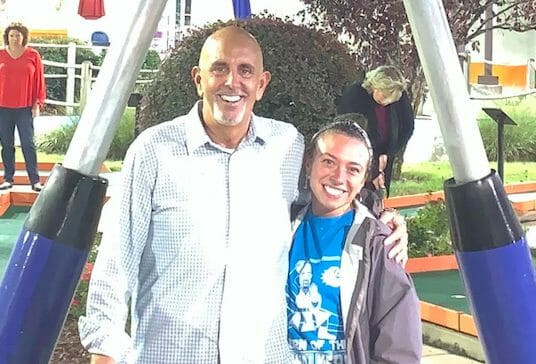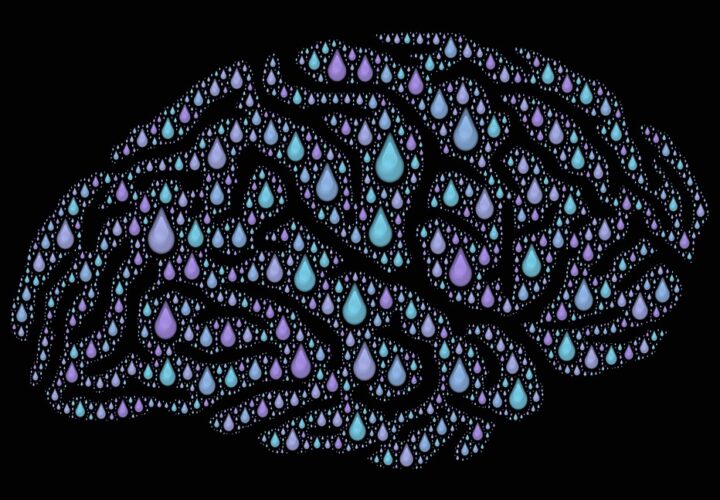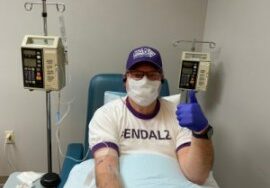For some, an Alzheimer’s diagnosis can feel like the end of life; for others, it’s a chance to begin a new one. Following his early onset Alzheimer’s diagnosis, local government worker Jay Reinstein made it his life’s work to continue contributing to his community however he can.
- At the age of 57, Jay was diagnosed with early onset Alzheimer’s disease. He also has the ApoE4 gene, which is linked to an increased risk of developing the disease.
- After 25 years working in local government, Jay now serves on the National Board of Directors for the Alzheimer’s Association and is also a part of the National Early-Stage Advisory Group.
- He also works as an Alzheimer’s advocate increasing awareness, lobbying for funds and encouraging others to make the most of life with the diagnosis.
Being Patient spoke with Jay about when he noticed his symptoms, how the diagnosis has affected his life and his advocacy work.
Noticing the Signs of Cognitive Impairment
Being Patient: Tell us a little bit about your story. You’re in your late 50s and were recently given a diagnosis just about a year and a half ago, is that correct?
Jay Reinstein: I had about a 25-year career in local government, and about two years ago I started experiencing some issues just with my short-term memory. I remember a situation where I was meeting with a community group and someone had asked me specifically about the departments that I supervise, which were six at the time, and I couldn’t recall one.
And then soon thereafter we were working on some hurricane recovery projects, which was really in my portfolio, and in the meeting a city manager asked me some basic questions and I couldn’t recall the project. So at that point I thought to call my friend at Duke, he’s a neurologist, and he was able to get me in [to get checked out] pretty quickly.
I did a neuropsychological assessment. I came back several months later and did another assessment, and it was at that time I went to the Duke Memory Disorders Clinic. They did an MRI and found that I had some brain abnormalities, most likely younger onset Alzheimer’s, and I also had what they called the ApoE4 gene. So it was a punch in the gut, a game changer, and quite honestly, I didn’t really know what I was going to do because again, I wanted to work another ten years.
I love being a public servant, and after that diagnosis I thought about it for about a week, and it was at that point that my wife and I talked and I said let me talk to my boss, the city manager, and share my story. And I felt like I was embraced by everybody: my staff, the community, the public officials. And it really gave me the opportunity to raise that awareness and give me a purpose.
Being Patient: You started at the point where you felt like something must be wrong, but I’m assuming that wasn’t the first incidence. Were there any signs earlier than those examples?
Jay Reinstein: I know so. I can probably go back even five years, and I don’t really talk about it too much, but there were times when I would be in a room, and I’d be hearing stuff, and it wasn’t really clicking in my brain, I wasn’t really comprehending it. I didn’t want to go to anybody, so I sort of let it go.
I noticed that I started making lists four years ago, five years ago, everything had a list, and even my wife would be sticking post-it notes in the house to make sure I didn’t forget stuff. A lot of it was just that I had a big job with information overload, it just comes with the territory, but my coworkers didn’t seem to be having the problems that I was, they didn’t seem to be working the same long hours.
I was leaving work usually at around eight at night, other people were usually getting out at six, and I would often hear, “Jay, get out of here, go home!” I’d say, “Yeah, yeah, yeah, I gotta work on some stuff.” It took me a lot longer, and I think it was really at work where I noticed it, years back, more so than just those latest things that I talked about.
Dealing with an Early Onset Alzheimer’s Diagnosis
Being Patient: Was it hard to get a diagnosis?
Jay Reinstein: First of all, I’ve always been someone very resourceful. I have a lot of contacts, I have friends that are doctors, and I know the system. I made some calls, and if it was not for my friend at Duke who is a neurologist, it might have been another six months before I could have gotten my foot in the door.
I really appreciated that connection. From beginning to end, from the first time I saw him to when I got the neuropsychological assessment, it was probably nine to twelve months before I actually got the diagnosis. I knew something was going on, but no formal diagnosis for probably about a year.
Being Patient: Tell us a little about how you managed those first days when you were handed the diagnosis.
Jay Reinstein: I think if it were not for my wife and my daughter, who have just been amazing from a caregiver perspective and just family. My parents are amazing. I’m just very fortunate to have some really great people in my life.
And then my friends: I was afraid, embarrassed actually, because I thought immediately, you know there’s that stigma there when you receive that diagnosis or people hear Alzheimer’s, they pretty much feel that life’s over, move on. And that was very hurtful, because there were whisperings in the workplace when I did get the diagnosis.
I stayed [at work] another four months. They were very nice to me as we sort of transitioned, but there were a couple of folks who I heard say, “Why is he still in the organization? He’s making decisions that impact an organization and the community,” and it was very hurtful. And I think that it’s helped just surrounding myself with the right people and finding that purpose, finding the Alzheimer’s Association, and figuring out what I’m going to do for the rest of my and how I’m going to support myself.
Leaving Behind Government Career and Finding New Purpose
Being Patient: What was it like to stop working?
Jay Reinstein: It was painful. I felt, I hate to say, less of a man. But I think what was most difficult was, you know when you get together with your friends, oftentimes you get to talking shop, and it’s what happened in the office, what did you do here, what projects are going on, you know how did the council meeting go. All of that seemed to disappear from my life.
And honestly, I was a workaholic, so it was just such a huge void. So it was really very difficult for me. I mean, I would say for probably the first six months I was, I don’t know if I was clinically depressed but I was depressed. And what helped was just having the ability for me to find purpose through the Alzheimer’s Association, speaking to small groups and large groups and sharing my journey, and letting people know that life isn’t over and to stay positive.
But I have the understanding that things are going to change in my life, and it might change in two years and it might change in five years, I don’t know. But I try to be a glass half full kind of person. I try to be positive. I think people think, “Oh god, he’s always so upbeat,” but I’m not always so upbeat.
Being Patient: Tell us a little about your life of advocacy. What are the messages you’re trying to get out there?
Jay Reinstein: I’m very pleased to be a part of the National Early-Stage Alzheimer’s Group, and recently I was appointed to the National Board of Directors for the Alzheimer’s Association, and my focus area is strategic planning. But the big message I’m trying to share and convey every chance I get is trying to reduce the stigma and letting people know that while I may have a diagnosis of Alzheimer’s, I still can be productive.
We still can do a lot of things in life, enjoy our family, travel, drive maybe for a period of time. And I hope that continues. I’m also very involved in the Walk to End Alzheimer’s, as well as big projects to raise money: partnerships, working with the NFL, working with Wal-Mart stores.
So there’s just so much potential out there for me to share my story, and more importantly letting people know that there is some amazing research going on, and one day hopefully that first person will be able to carry that white flower when they’ve found the cure.



